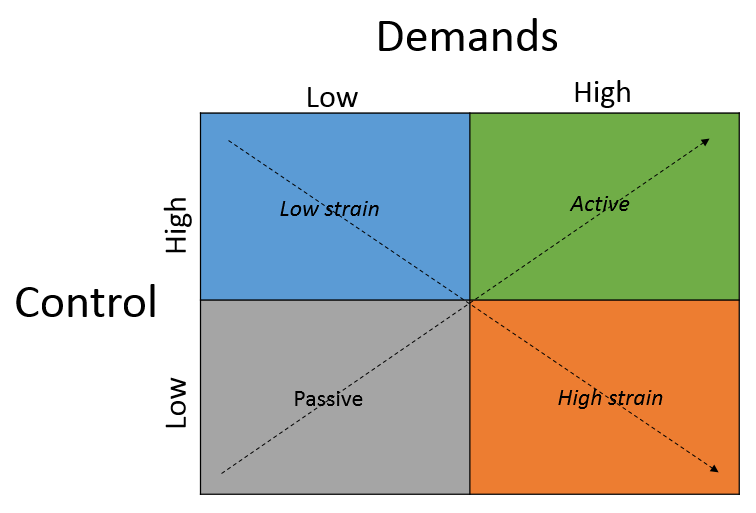Work-Life Balance – Topic 2: Psycho-social Working Environment
The second module of the Aker Care Work-Life Campaign focuses on the working environment and how this affects all of us.
In order to strive for increased work-life balance, it is crucial how the work is organized. The term “psycho-social work environment” relates to our experience of well-being at work. The psycho-social conditions at work can be understood in many ways and when turning to the literature we find several models that are designed to describe how conditions in the work-place affect each other.
A theory that describes the relationship between job requirements and job control has proved to reveal valuable insights. The model is called the Demand-Control-Social Support Model and reminds us how important the social dimension at work can be to prevent disease, promote health and create increased opportunities for work-life balance.
It is well documented that a stressful work situation with high job demands combined with little opportunity to manage our own work day increases the risk of a number of health problems, especially cardiovascular disease, mental health problems, sick leave and disability.
When employees experience good social support at work the negative effects of high demands and low control are reduced. Social support acts as a buffer against physical and mental health problems that may rise from excessively high demands in the job.
According to the model, we experience growth and satisfaction, when the work includes moderate demands and challenges that are combined with varied work tasks and opportunities for self-managing.
Many people experience periodically low control and high demands. The workers who experience good social support at work, show less vulnerability for illness than co-workers who do not feel they have social support from their colleagues.
We can conclude that social support at work promotes and protect health and well-being especially in periods when we experience high demands and low control at work.
Components in a good psychosocial work environment are:
- Realistic job demands
- The experience of control
- Social support from colleagues and management

Figure: Demand-Control-Social Support model
References
Fatih Ozbay et al. Psychiatry (Edgmont). 2007 May; 4(5): 35–40. Social Support and Resilience to Stress. From Neurobiology to Clinical Practice
Johnson & Hall, 1988: Job strain, work place social support, and cardiovascular disease: a cross-sectional study of a random sample of the Swedish working population.
Karasek (1979) Job demands, job decision latitude, and mental strain: Implications for job redesign
Knardahl, 2016 Arbeidsplassen og sykefravær – Arbeidsforhold av betydning for sykefravær
Stansfeld & Candy (2006) Psychosocial work environment and mental health—a meta-analytic review